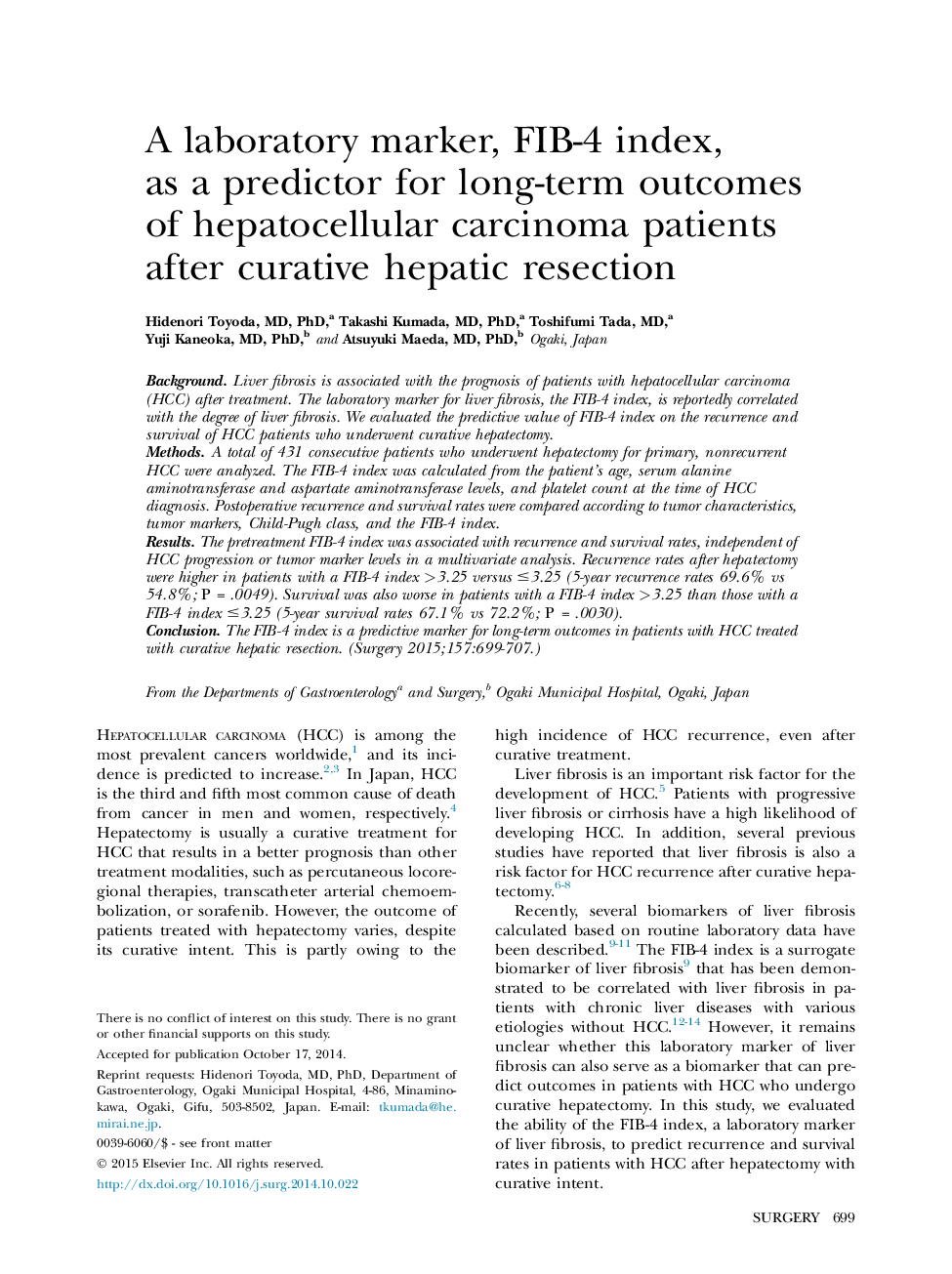| Article ID | Journal | Published Year | Pages | File Type |
|---|---|---|---|---|
| 4307177 | Surgery | 2015 | 9 Pages |
BackgroundLiver fibrosis is associated with the prognosis of patients with hepatocellular carcinoma (HCC) after treatment. The laboratory marker for liver fibrosis, the FIB-4 index, is reportedly correlated with the degree of liver fibrosis. We evaluated the predictive value of FIB-4 index on the recurrence and survival of HCC patients who underwent curative hepatectomy.MethodsA total of 431 consecutive patients who underwent hepatectomy for primary, nonrecurrent HCC were analyzed. The FIB-4 index was calculated from the patient's age, serum alanine aminotransferase and aspartate aminotransferase levels, and platelet count at the time of HCC diagnosis. Postoperative recurrence and survival rates were compared according to tumor characteristics, tumor markers, Child-Pugh class, and the FIB-4 index.ResultsThe pretreatment FIB-4 index was associated with recurrence and survival rates, independent of HCC progression or tumor marker levels in a multivariate analysis. Recurrence rates after hepatectomy were higher in patients with a FIB-4 index >3.25 versus ≤3.25 (5-year recurrence rates 69.6% vs 54.8%; P = .0049). Survival was also worse in patients with a FIB-4 index >3.25 than those with a FIB-4 index ≤3.25 (5-year survival rates 67.1% vs 72.2%; P = .0030).ConclusionThe FIB-4 index is a predictive marker for long-term outcomes in patients with HCC treated with curative hepatic resection.
